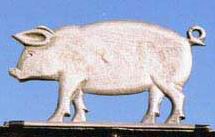GirlChat #408843
Re: Where did you find that?
Posted by Hen-Wen on Sunday, September 16 2007 at 4:53:30PM
In reply to Where did you find that? posted by LOD on Saturday, September 15 2007 at 10:06:49PM
|
This article provides an adequate survey on the topic:
(http://www.as.wvu.edu/~kgarbutt/QuantGen/Gen535_2_2004/Inbreeding_Humans.htm) "...if there are harmful recessive alleles present in the population, the genes and characteristics still have the possibility of surfacing and negatively affecting a population, but it is very possible that the population will never see any harmful effects due to incest. In fact, some experts believe that in some cases inbreeding can be helpful to a population by constantly exposing harmful recessive genes to selection. By frequently exposing these genes to selection, the harmful alleles can become permanently eliminated from the population." Basically, inbreeding increases the chances that a child will receive two copies of a harmful allele, resulting in that gene being expressed. The more inbreeding occurs, the more likely those harmful genes will be expressed. The reason some sources say that the first generation is more likely to manifest birth defects is that in other animals especially, any offspring with serious defects will be unlikely to survive to procreate, and thus only the healthy offspring (with no harmful alleles) will survive, and thus future inbreeding will not result in birth defects (as the harmful genes have been eliminated.  |
Follow ups: